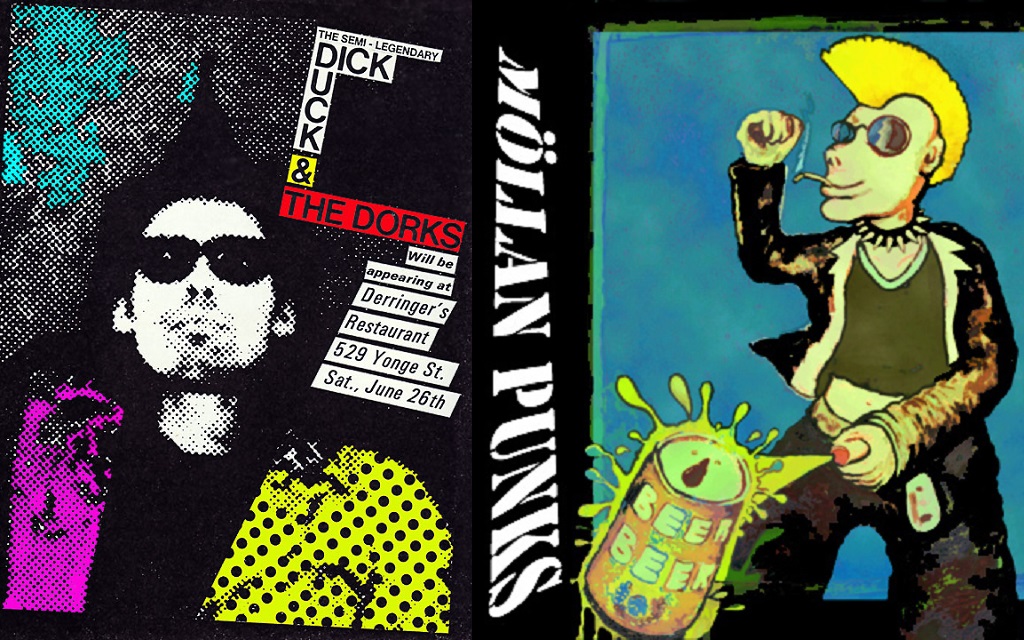Punk visual art is artwork associated with the punk subculture. It often graces punk rock album covers, flyers for punk concerts, punk zines and punk websites. It is also sometimes showcased in art galleries and exhibition spaces.
The main aesthetic of punk visual art seems to be to either shock, create a sense of empathy or revulsion, make a grand point with an acidic or sarcastic wit. One characteristic associated with punk art is the usage of letters cut out from newspapers and magazines, a device previously associated with kidnap and ransom notes. A prominent example of that style is the cover of the Sex Pistols’ Never Mind the Bollocks album designed by Jamie Reid. Images and figures are also sometimes cut and pasted from magazines and newspapers to create a collage.
Los Angeles artist Mark Vallen has said:
Punk had a unique and complex aesthetic. It was steeped in shock value and revered what was considered ugly. The whole look of punk was designed to disturb and disrupt the happy complacency of the wider society. Outside of punk’s torn and safety pinned anti-fashion statements, this impulse to outrage was never more apparent than on punk album covers.
In New York City in the mid-1970s, there was much overlap between the punk music and art scenes. In 1978, many of the visual artists who were regulars at CBGB and other punk-related music venues participated in a large punk art exhibition in Washington, DC. Among those featured were John Holmstrom and Legs McNeil of the fanzine Punk,; Alan Vega (a.k.a. Alan Suicide), whose electronic junk sculpture predated his role in the band Suicide; photographers Marcia Resnick and Jimmy De Sana; tattoo artist Ruth Marten; filmmaker Amos Poe; and artists Tom Otterness and Beth and Scott B, who were associated with X Magazine.
Also in 1978 in New York City, a related, one-night punk art show featuring films, performances and slide shows included works by Robert Mapplethorpe and Diego Cortez. Other early punk art exhibits included the “Times Square Show” (1980) and “New York New Wave” at PS 1 (1981). Punk art found an ongoing home on the New York’s lower east side with the establishment of ABC No Rio Gallery in 1980. The punk aesthetic was a dominant strand from 1982 to 1986 in the art galleries of the city’s East Village.
Source From Wikipedia
